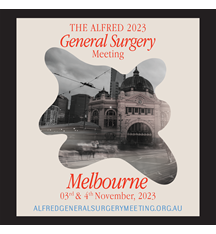2023 | Volume 24 | Issue 4

Author: Associate Professor Felix Behan
A Wall Street quote was the basis of the proverb ‘shirt sleeves to shirt sleeves’ where wealthy magnates and their inheritance become eroded by the second and third generations who do not have the wit or talent of the originators. Does this reflect an emerging surgical trend? Cornelius Vanderbilt, a wealthy iron, steel and railways magnate, built Grand Central Station (illustrated) from his enormous wealth. Passing away in 1877, his family’s inheritance of $97 million was reduced to almost zero 100 years later due possibly to bad investments—mirroring the statement ‘shirt sleeves to shirt sleeves’. Andrew Carnegie, another wealthy industrialist and philanthropist, built libraries throughout America and the Pacific, and the Carnegie Hall in New York in 1891—a concert platform for emerging artists. Once you played there your artistic status was assured. Isaac Stern, the Russian violinist and ex-Bolshevik, was asked by a tourist, ‘How do you get to Carnegie Hall?’ and his response was ‘You practice and practice and practice’. Carnegie subsequently established and donated $350 million to the Carnegie Foundation. He believed in using his fortune for others and in doing more than making money—the focus of his article published in the North American Review in 1889. His essay The Gospel of Wealth had many synoptic pointers. This has a surgical perspective, and those that contribute to the public system (which taught them) warrant a reciprocal gesture to acknowledge their academic mentors. Thus, the College Council could well stipulate that recent Fellowship recipients should be obliged to contribute to a regional surgical service. As Lucius Seneca observed: ‘We learn by teaching which teaches us to learn’. Carnegie learnt the value of local libraries as a teaching focus and the Melbourne suburb of Carnegie had such plans in mind. They named their railway station after him hoping for a library donation. I have a little library vignette to share about new librarians who tend to dry clean the old volumes—which often come from old surgical collections—from libraries, disposing of these old text books for want of space. This must be revisited. At one of the regional hospitals, I picked up a volume of Lamberty’s The Arterial Anatomy of Skin Flaps for five dollars. Amazon priced it at $3220—reflecting its importance and rarity. My registrar at the time was the lucky recipient. So, what other pearls have found their way to the never-never of universal recycling? Dr Phil Slattery has a book of Bunnell’s Surgery of the Hand—almost irreplaceable but it does not warrant Cowlishaw status. We must find a space for such important items salvaged for the younger generation of surgeons. Carnegie’s philosophical pearls are shared by Napoleon Hill in his texts ‘The Wisdom of Success’ and ‘Think and Grow Rich’ and there is a surgical overlap in these: This little skirmish on wealth accumulation and surgical disintegration and its value in present day surgery is a dissertation based on caution. As a plastic and reconstructive surgeon—brought up on the perfectionist attitude initiated by Gillies, then adopted by BK Rank in Australia —it is now evident in the dermatological school that perfection is far beyond their capabilities. This loss of perfection is because the plastic surgical demands for microsurgery are a time-consuming development with two surgeons in micro-duet and cases cancelled because of lack of availability of staff or theatre time. This is unsustainable. The fading art of reconstructive surgery with the substitution of microsurgical intervention is now becoming the keynote plan. The units should be divided equitably to share the load. There must be a radical change in the attitude of reconstructive surgical teaching because regretfully the financial return of microsurgical intervention far outweighs the standard repertoire of the reconstructive art. As one of my senior colleagues observed, “The level of expertise in doing some of these microsurgical procedures is at the level of a lab tech in any research department”. So, if one gets an absurd income for microsurgical repair and loco-regional repairs are fading into oblivion, where does this leave us? Nowhere but 'shirtsleeves to shirtsleeves' and the loss of our specialty, based on perfection.


